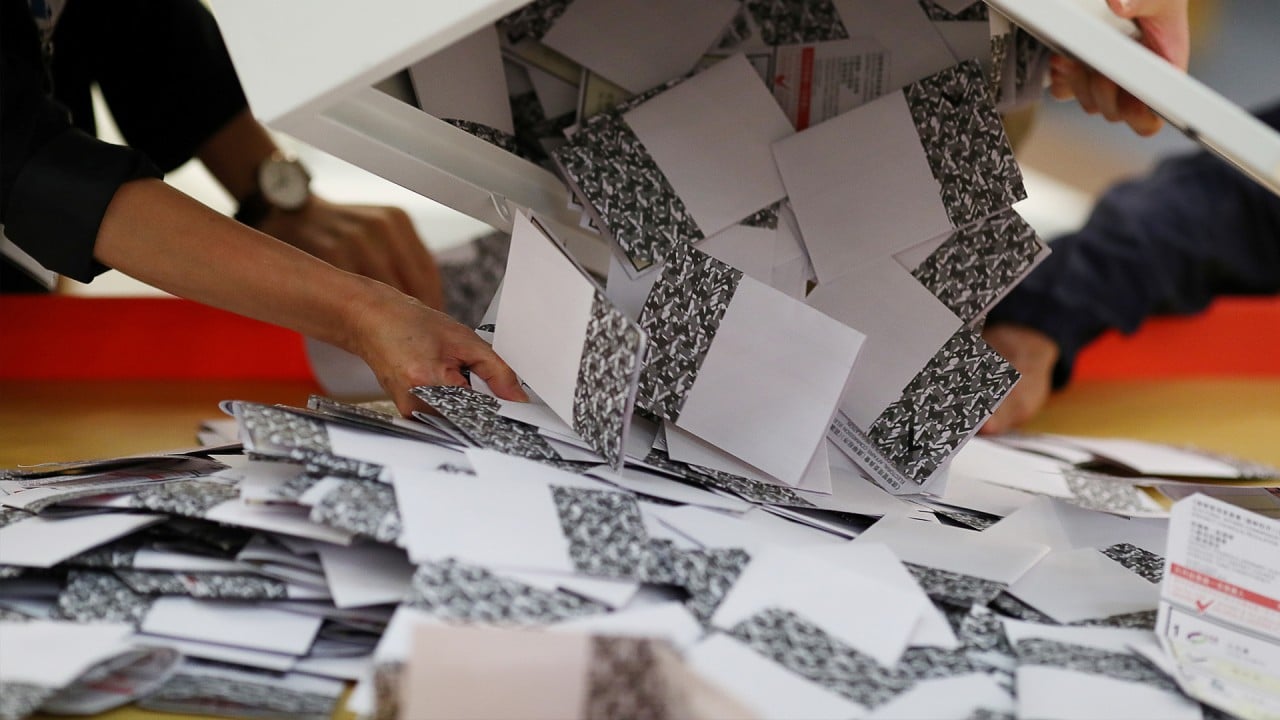
China’s ‘two sessions’: Beijing promises level playing field but boosts support for state firms
- The government’s new work report promises equal treatment for private and state-owned enterprises (SOE)
- But Beijing’s push for SOE innovation to reach tech self-sufficiency could undermine the goal, some analysts say
China has highlighted the fair treatment of all market entities in its new five-year economic plan, as it tries to reconcile development of both private and state firms and fend off criticism from foreign governments.
However, Beijing’s emphasis of “better, bigger and stronger” as the guiding principle for state-owned enterprise (SOE) reform is likely to stir suspicion overseas and at home that government-backed firms could be given an even greater role in future economic development.
“All the market entities are contributors to our modernisation. They must be treated equally.”
Reform of China’s state firms – many of which are among the Fortune 500 list of largest companies in the world – has long been a feature of the premier’s annual work reports.
SOEs have come under harsh criticism for years from both foreign and domestic competitors, who have complained about their low efficiency, monopoly control over key sectors of the economy and preferential treatment in terms of lending and access to resources.
In the five-year plan for the period 2021-25 and the 2035 vision, the government pledged to restructure the state economy by concentrating on areas of strategic security, industrial leadership, core industries and public services.
The goal was to enhance SOEs competitiveness, innovation, power and risk-management capabilities, the government said.

06:05
Two sessions: China’s parliament plans an overhaul of Hong Kong’s electoral system
Authorities have promised to implement more market-based hiring and incentives, tougher financial requirements over businesses in competitive industries, and open up sectors such as energy, railways and telecoms to competition.
China’s state firms have long been a source of conflict between Beijing and its trading partners, with the United States and Europe in particular claiming they receive favourable treatment that disadvantages domestic private sector firms and foreign companies.
Despite repeatedly promising to level the playing field, Beijing’s new emphasis on R&D in core technologies to boost economic self-sufficiency is likely to see it leaning on trusted state firms.
China’s leadership definitely has an overall favourable impression of state-owned enterprises and how they have helped China in its rise
Louis Kuijs, chief Asia economist at Oxford Economics, said there were lingering worries that authorities would continue to favour SOEs in day-to-day decision-making, a situation in which the “level playing field will not emerge”.
“China’s leadership definitely has an overall favourable impression of state-owned enterprises and how they have helped China in its rise,” Kuijs said.
State firms were brought back into the spotlight in April last year when President Xi Jinping hailed their foundational role in both pandemic control and industrial production.
China had about 64.9 trillion yuan (US$9.9 trillion) worth of net state-owned assets in the industrial sector at the end of 2019, up from 58.7 trillion yuan a year earlier, according to data from the Ministry of Finance.
Li Jin, chief researcher with the China Enterprise Research Institute, said state firms were vital to the Communist Party’s rule and implementing its national policies. But he added the principle of competition neutrality would be honoured in practise.
State and private economies are not in opposition to each other, but are complementary
“State and private economies are not in opposition to each other, but are complementary,” he said.
“During the reconstruction of China’s industrial chains over the next five years, large state firms will undertake the responsibility to strengthen China’s dominance in large investment projects, while also producing many development opportunities for [privately-run] small and medium-sized enterprises.”
Innovation will be the top task for state firms in China’s effort to reach technological self-sufficiency, the country’s state assets regulator said last month.
“We will concentrate their resources and strengthen them to build a national strategic technology force,” said Hao Peng, chairman and Communist Party secretary of the State-owned Assets Supervision and Administration Commission (SASAC).
Research to address the nation’s technological weak links – including in machine tools, high-end semiconductors, software, new materials and jet engines – are at the top of the agenda, he said.

